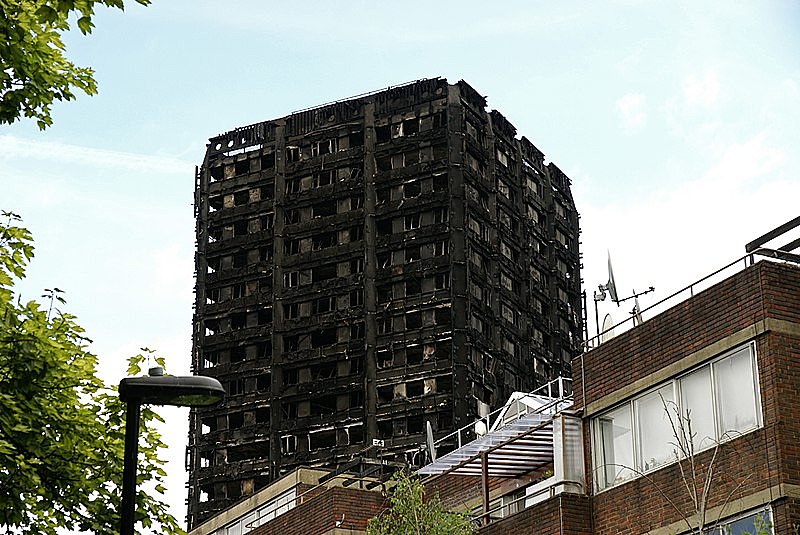
The events at Grenfell Tower in North Kensington on the 14th June have illustrated, in the starkest possible terms, the absolute poverty of contemporary housing policy.
No one could have anticipated the huge loss of life, the horror of that night and the way that residents were failed in the worst possible way. Whilst the full facts of this disaster have yet to be determined (and should emerge from the public inquiry) what seems clear is that as Mariana Mazzucato (amongst others) pointed out in a tweet, the tragedy highlights the complete failure of three main strands in contemporary public policy.
The first of these factors is the enthusiasm for deregulation. Whilst recent governments of all strands have contributed to this zeal, the 2010 Coalition government produced the most egregious example in their thoughtless ‘red tape challenge’, underlining a philosophy that government regulation only functions as a burden on free enterprise. Grenfell Tower illustrates the deficiency of this kind of thinking. Residents had persistently warned of health and safety concerns; such concerns can no longer be casually dismissed as imposing unnecessary bureaucracy – this kind of thinking must surely be confined to the dustbin of history.
The strategy of radical outsourcing provides the second example of policy failure, based on the lazy assumption that private enterprise will always be preferable to public sector provision. Local authorities have long been subjected to (and sometimes complicit in) such outsourcing, which has included contracting out of building regulation. One of the many ironies of this disaster is that a Tenant Management Organisation (TMO) – a body in theory controlled by residents, managed the block. However, the suggestion that residents exercised influence in decision-making at Grenfell is likely to be met with a withering response from those affected by the fire.
The third key failure is the imposition of a strategy of austerity; applied in a punitive fashion, which disproportionately disadvantaged lower income groups. The 2010 Coalition government greatly accelerated the expenditure reductions, which primarily affected the local authority sector, with a devastating impact on the ability of housing providers to deliver services. Austerity strategies have also affected other public services of course – most notably in this respect fire-fighting, police and health services. An obsession with cost reductions was surely a key factor in the decision to purchase (marginally less expensive) cladding which accelerated the conflagration. Moreover, these problems have happened before – six people died at Lakanal House (in Southwark) in 2009. The news that other tower blocks have cladding similar to Grenfell’s is disturbing but not perhaps entirely surprising, given the obsession with cuts. The fact that the Royal Borough of Kensington and Chelsea ran a budget surplus, which enabled them to offer a £100 rebate to the highest council tax band payers, whilst applying rigorous cost savings to landlord agencies exacerbates this injustice. A title of a recent book written by David Whyte and Vickie Cooper – ‘The Violence of Austerity’ – summarises his point very well.
A number of commentators (most notably Jeremy Corbyn) have highlighted the treatment of working class communities in a range of contexts and it is also notable how high the proportion of households from minority ethnic households were in the block. The hope is that this event will prove a decisive turning-point in attitudes to social housing. The response from the local authority in the wake of the event only compounded the anger of residents – but central government must share the blame, as well as the media for their persistent stigmatisation of social housing residents. At the same time, despite Theresa May’s inept handling of the disaster, the tragedy should not be personalised – the problem is systemic and calls for a fundamental re-evaluation of our attitudes towards, inequality, class, race and housing.
The concern (shared by commentators such as Paul Watt) is that this shameful event is used as a further excuse to undermine social housing. The existence of what Ed Vulliamy in the Guardian termed the ‘outrageous crematorium on the skyline’, must surely give pause to the seemingly relentless march of neoliberal ideology. It is incumbent on all those interested in housing research to tackle these issues head-on: to make a positive case for the importance of a decent, affordable, social housing sector; to highlight social injustice and to understand the impact of inequality.
Tony Manzi
University of Westminster






